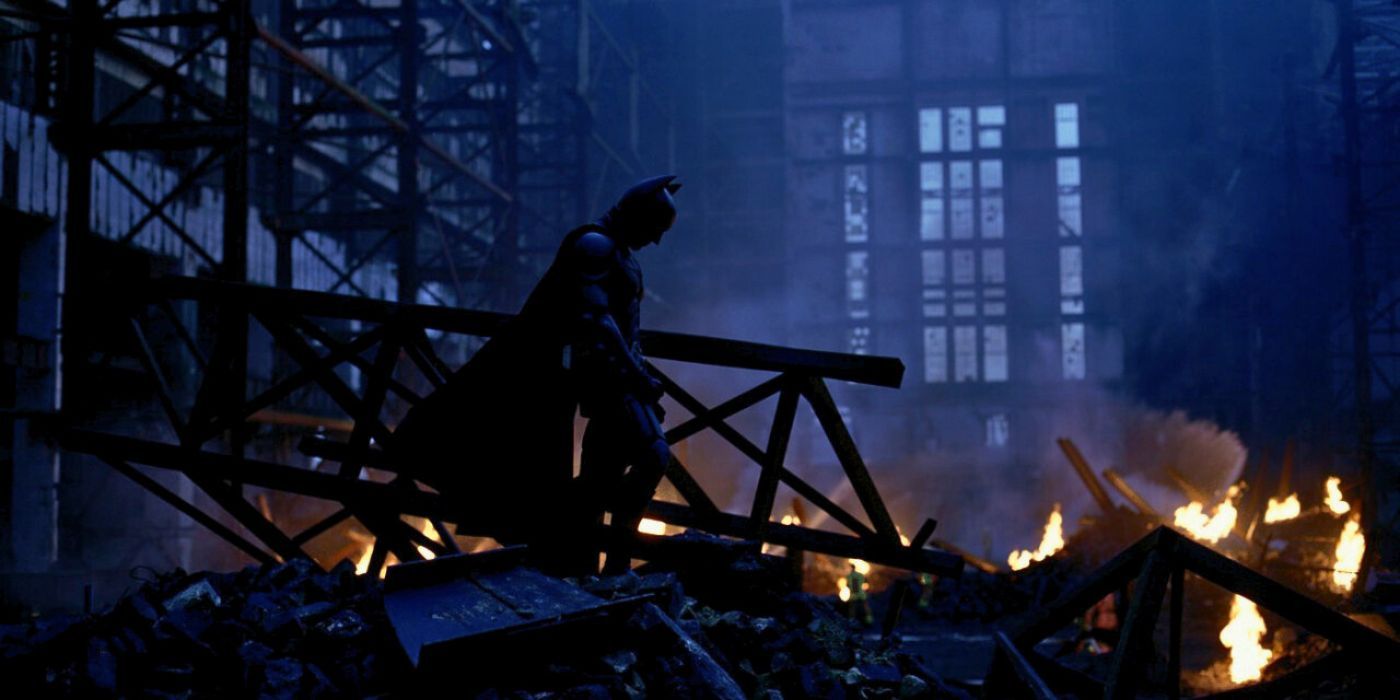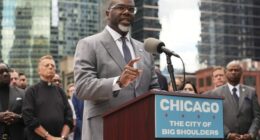One need not have seen Casablanca to know “Here’s looking at you, kid,” Scarface to know “Say hello to my little friend,” or Gone with the Wind to know “Frankly, my dear, I don’t give a damn.” This is to illustrate that a great movie line, when regarded as such by the masses, can become in itself a timeless icon of cinema. However, for every classic quote, there are hundreds of incredible lines that haven’t received the attention and acclaim they so thoroughly deserve.
In some cases, it is because the line itself exists within a forgotten or forlorn film. Other times, the quote is simply overshadowed by other elements of the movie’s brilliance, including other, more renowned phrases. Ranging from coy, comedic quips to commanding contemplations on the nature of humanity, these quotes are not only some of the most underrated in cinema history, but some of the very best as well.
“Sometimes people deserve to have their faith rewarded.”
Batman, ‘The Dark Knight’ (2008)
When it comes to popular quotes, The Dark Knight is hardly a movie that would be considered underrated. Whether it is Harvey Dent’s (Aaron Eckhart) famous line about dying a hero, or the Joker’s (Heath Ledger) ominous “Why so serious?”, the film has had many of its best quotes entrenched in pop culture. However, with so many great lines, it stands to reason that some outstanding quotes have been somewhat overlooked, as is the case with Batman’s (Christian Bale) complex yet ultimately optimistic assertion about what is best for the people of Gotham City.
With the Joker’s efforts to plunge the city into a state of chaos and anarchy, Batman must adhere to his moral code more stringently than ever to symbolize the hope and resilience of the city. The revelation of Harvey Dent’s villainous turn promises to deliver a crushing blow to the spirit of Gotham’s citizens, so Batman declares that the people deserve more than another false hero who betrayed their faith. It is a quote and a moment that holds corruption and protection hand-in-hand, and it is an underappreciated meditation on the nature of morality and power that exemplifies the true magnificence of The Dark Knight’s conclusion.
“All right, fellas, let’s go and say a prayer for a boy who couldn’t run as fast as I could.”
Father Jerry Connolly, ‘Angels with Dirty Faces’ (1938)
Angels with Dirty Faces stands as one of the most timelessly brilliant and morally sharp films from Hollywood’s golden era. The 1938 crime drama opens with two street urchins, Jerry Connolly (Pat O’Brien) and Rocky Sullivan (James Cagney), on the run from the cops. Rocky is caught and thrust into juvenile detention, kick-starting a life of crime. Jerry turns to religion for shelter and becomes a priest. Fifteen years later, Jerry is striving to ensure a group of impressionable orphans lead decent lives, but the devilish allure of Rocky—recently released from prison—threatens to corrupt the kids for good.
The film is touching with its idealism and its faith in humanity, with Rocky being portrayed as an admirable character despite his many flaws, a fact that is emphasized in the film’s rousing and richly emotional climax. Father Connolly’s final line, bidding the orphans pray for the soul of Rocky, is beautifully worded. Not only does it express a belief that everyone deserves compassion and prayer, but in hearkening back to his and Rocky’s youths and the paths each of them was set on, it frames how easily one’s life trajectory can be set. Poignant, powerful, and full of pathos, it is one of the most moving final lines in cinematic history.
“Well, as a historian, I must remind you that the world hasn’t had much trouble from Carthage in the past two thousand years.”
Franz Kindler / Professor Charles Rankin, ‘The Stranger’ (1946)
If one is to advocate for a Carthaginian peace, it is best to do so with a wry wit and an effortlessly suave delivery. Orson Welles masters exactly that, taking full flight in The Stranger, in which he commands the screen as director, co-writer, and star. While it has perhaps dwindled from mainstream acclaim, the 1946 noir thriller remains a classic of the genre, following Welles’ Franz Kindler, a wanted Nazi war criminal living in Connecticut under the alias Professor Charles Rankin, supposedly an expert historian.
The highlighted quote is uttered at a dinner party when Rankin, attempting to propel his disguise, suggests Germans are incapable of compassion and should face extreme penalties for igniting WWII to prevent them from starting another conflict. When his wife protests the morality of a Carthaginian peace, Rankin retorts with a brutish factuality. While on the surface it is a clever little quip, it also reveals the Nazi’s callous disregard for human life, working brilliantly on two levels to reveal integral elements of his character. Memorably snappy, wonderfully orated, and laced with such depth, the line is one of the sharpest and most underrated to have been uttered in thriller cinema.
“Life passes most people by while they’re still making grand plans for it.”
George Jung, ‘Blow’ (2001)
A biographical crime drama that largely slumped as a moderate financial success and a forgettable critical failure, Blow struggles to become anything substantial. Its take on the story of George Jung’s (Johnny Depp) descent to becoming a prolific drug trafficker is obviously inspired by superior crime films released in the years prior. That being said, it does find a couple of diamonds in the rough, including Depp’s admirable lead performance and his memorable delivery of the line that illustrates Jung’s hyperactive approach to life.
Granted, wisdom wouldn’t be the first word that comes to mind when analyzing Jung’s lifestyle philosophies, but his quote is a poignant and perfect encapsulation of how much time so many people let pass by while they think about what their life can and should be like. It effectively conveys the idea that people have a tendency to prioritize the future always at the expense of the present, and implores that, sometimes at least, it is important to take action rather than to perennially worry about the consequences.
“Names is for tombstones, baby.”
Mr. Big / Dr. Kananga, ‘Live and Let Die’ (1973)
When it comes to cinema’s greatest quotes, the James Bond franchise is something of a powerhouse. Such classics as “a martini, shaken not stirred” and “Bond, James Bond” are just a couple of the noteworthy lines that have cemented themselves in the annals of film history. The franchise boasts a boisterously underrated quip as well, though, in Sir Roger Moore’s 007 debut, Live and Let Die.
When Bond’s advances on Solitaire (Jane Seymour) are interrupted by the rambunctious dictating of New York drug kingpin Mr. Big (Yaphet Kotto), the debonair spy makes an effort to introduce himself in his trademark fashion, getting so far as to say “my name is—” before Big cuts him off. Delivered with cool brutality and street-savvy ease, it is the most underappreciated line in the Bond franchise and one of the coldest retorts film has ever seen.
“Baravelli, you’ve got the brain of a four-year-old boy, and I bet he was glad to get rid of it.”
Professor Quincy Adams Wagstaff, ‘Horse Feathers’ (1932)
When it comes to great insults from the movies, few stars are as prolific or piercing as the late, great Groucho Marx. One of the Marx Brothers, Groucho was known for his lightning-fast wit and mastery of manipulating the structure of the English language, gifts that solidified him as one of the greatest comics cinema has ever seen. While his legacy endures, the brilliance of many of his quips has been somewhat forgotten, leading to a litany of one-liners that now stand among the most underappreciated insults in film.
One of his finest comes in the Marx Brothers’ 1932 comedy classic Horse Feathers, which sees Groucho star as the newly-appointed president of Huxley College and is tasked with improving the school’s football team by recruiting bar-dwelling stars Baravelli (Chico Marx) and Pinky (Harpo Marx). Professor Wagstaff’s snide remark at Baravelli is a hilarious play on a common phrase that stands as just one of many sharp jabs Groucho Marx delivered throughout his career.
“Finance is a gun. Politics is knowing when to pull the trigger.”
Licio Lucchesi, ‘The Godfather Part III’ (1990)
As the third of The Godfather films, there is sometimes a feeling that The Godfather Part III’s most valuable contribution to society is that it enables The Godfather title to be in the conversation for best movie trilogies of all time. However, the much-maligned crime drama does sneakily contain one of the most cutting and contemplative quotes about the nature of money, politics, and power in American society.
It is the explanation that Licio Lucchesi (Enzo Robutti) gives on the nature of his expertise when Vincent Mancini (Andy Garcia), Michael Corleone’s (Al Pacino) nephew, admits that he understands guns more than politics or finance. Don Lucchesi’s quote re-augments the understanding many have of the nature of politics with a striking brutality, a calculating conviction that insists that money is power and that it can be wielded and weaponized to great effect by those in positions of authority. The line is sharp and succinct in its honest evaluation of how money flows as the lifeblood of power in America. It is also a rare highlight from one of the most infamous movies Hollywood has seen.
“Wars, conflict – it’s all business. One murder makes a villain; millions, a hero. Numbers sanctify, my good fellow.”
Monsieur Henri Verdoux, ‘Monsieur Verdoux’ (1947)
In The Great Dictator, silent film icon Charlie Chaplin delivers what is widely heralded to be one of the greatest and most ceaselessly relevant monologues cinema has ever seen as he decries fascism, the rule of dictators, and the impact of war. Seven years later, he again addresses the dumbfounding morality of wartime society by commenting on the hypocrisy of heroizing the arms manufacturers and industrialists who supply the war machine while convicting the actions of those pushed to extreme lengths to provide for their struggling families.
His excellent quote epitomizes the essence of the movie, the brutal priorities of a desperate society that picks and chooses the violence it idolizes. As a bitter black comedy, Monsieur Verdoux pulls no punches in its scorching antiwar sentiment or venomous social commentary, bold qualities that have seen it age gracefully, even if it was derided upon release. Unfortunately, such derision has seen not only this sensational quote, but the overall film fall as an underrated masterpiece from one of cinema’s earliest and greatest stars.
“I’m just a f—d-up girl who’s looking for my own peace of mind; don’t assign me yours.”
Clementine Kruczynski, ‘Eternal Sunshine of the Spotless Mind’ (2004)
An enchanting marriage of high-concept sci-fi and romantic drama, Eternal Sunshine of the Spotless Mind is a true modern American classic that delves into questions of squandered love and regret with unique insights and emotional complexities. One of its most defining achievements is that, even with the story unfolding specifically from Joel’s (Jim Carrey) perspective, Clementine (Kate Winslet) still stands as a three-dimensional and independent character who deconstructs the idealized and unrealistic depiction of women in romantic cinema.
Her pointed quote addresses this subversion with sympathy and maturity, speaking to the unhealthy co-dependency many men have on their significant others. The line comments on the fact that, no matter how perfect they may seem, the people we fall in love with are flawed individuals striving to find a sense of self and comfort in the world. As both a powerful statement on real-world relationships and a beautiful commentary on Joel and Clementine’s romance, the quote excels with its tender sincerity.
“‘In this world, Elwood, you must be oh so smart or oh so pleasant.’ Well, for years I was smart, I recommend pleasant. And you may quote me.”
Elwood P. Dowd, ‘Harvey’ (1950)
Buoyed by James Stewart’s gorgeously charming lead performance, Harvey thrives as a fantasy comedy following Elwood P. Dowd, a man deemed to be hopelessly insane by his family, given his friendship with an invisible six-foot-tall rabbit named Harvey. As they seek to have him institutionalized, however, two things become clear: Harvey might not be quite as imaginary as first thought, and Elwood’s whimsical, unconditional kindness in a world of cynicism may make him far saner than most others.
With Stewart effortlessly finding the perfect balance between naivety and good faith, the film’s tender message of human decency is beautifully epitomized in Dowd’s simple yet charming remark. While the character could be viewed as completely oblivious given his gleeful disregard for others’ insults, the quote re-frames Dowd as a man defined by individuality, compassion, and no small amount of conviction. Powered by Stewart’s delicately wise delivery, the line is one of the most beautiful in cinematic history, illustrating a simple philosophy that more people should live by.



















